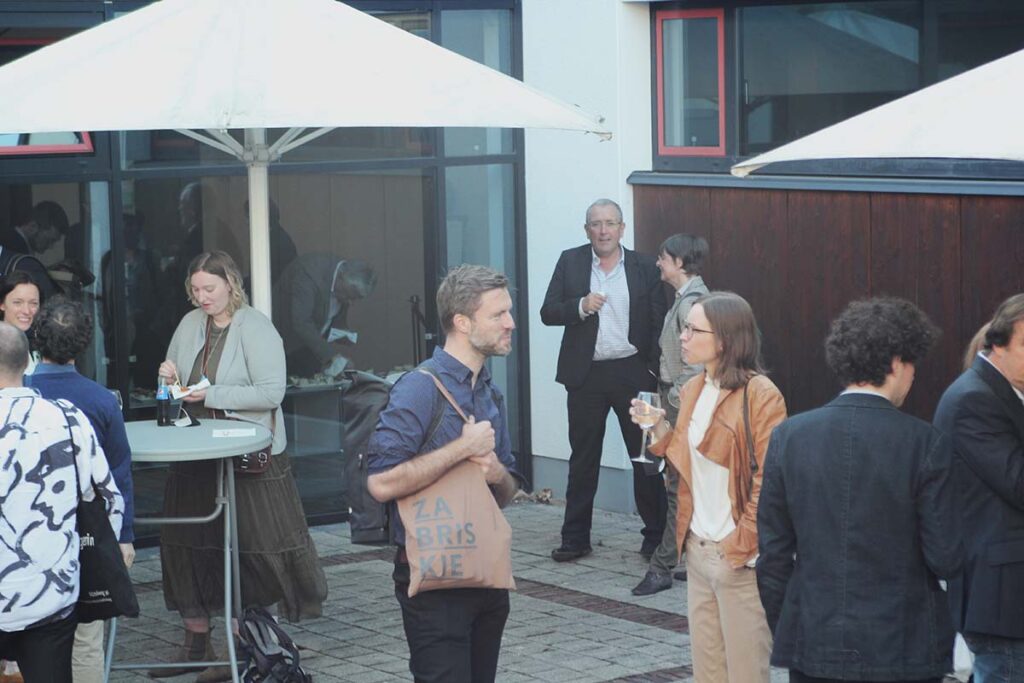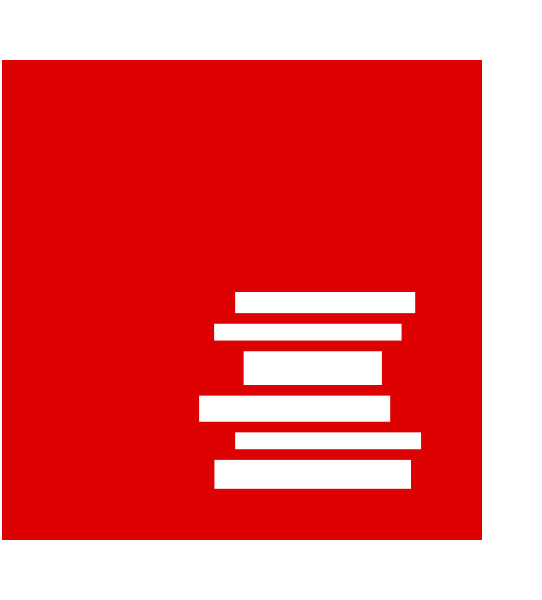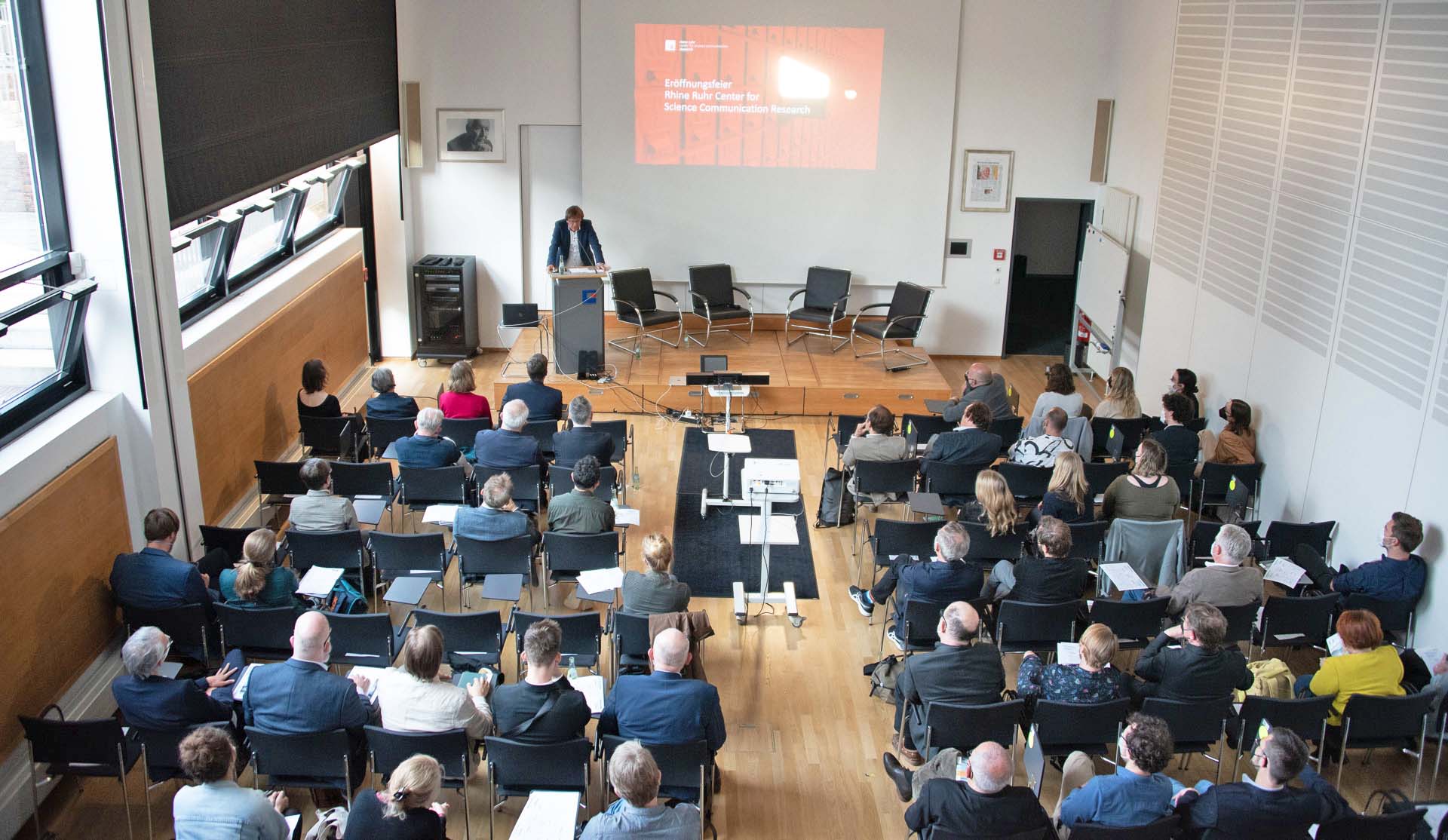After the team of the RRC had already been working quietly behind the scenes since the end of 2021, it was finally time to celebrate the official opening in light of more relaxed Covid-19 restrictions at the Erich Brost Institute of TU Dortmund University: 70 invited guests – members of participating universities as well as experts and interested parties from journalism and various communication institutions – followed the invitation to the ceremonial launch of the research project, which is unique throughout NRW.
After the official welcome by Holger Wormer (RRC-Co-Director, TU Dortmund) and a brief overview of the RRC’s research projects by Julika Griem (RRC-Co-Director, KWI Essen), it was time for the main feature of the event – a panel discussion for which the RRC-team had chosen a special format. Instead of having the project leaders themselves talk about the goals and plans for the coming years, students and external experts in the field of science communication were asked to participate in three panel discussions. Each hosted by a RRC-member, the panel discussions not only allowed the guests to discuss the research agenda of the RRC from an external perspective. They also had the opportunity to express their expectations and wishes for the work of the RRC.

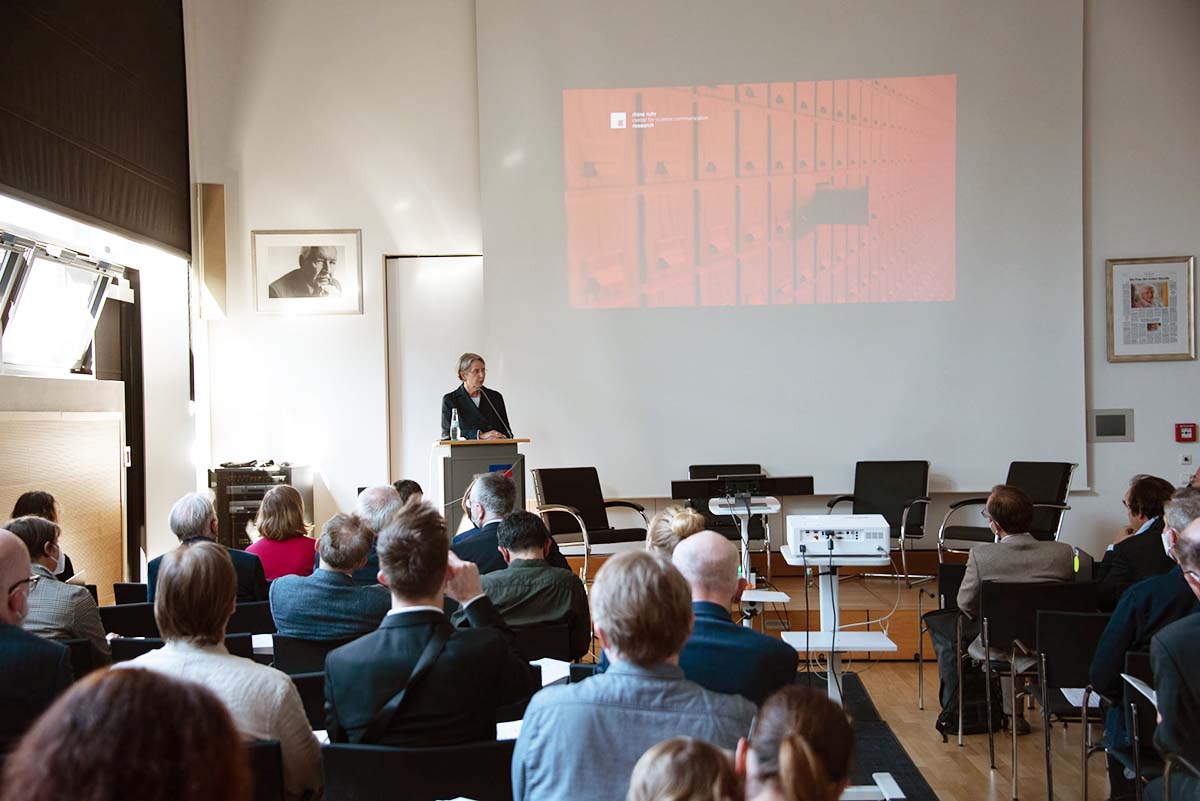
In the first panel, hosted by Oliver Ruf (RRC-Co-Director, H-BRS), Julia Schubert (University of Speyer) spoke with students Selina Stiegler from Bonn-Rhine-Sieg University of Applied Sciences and Emma Lehmkuhl from TU Dortmund University about “Science Communication in Times of a Crisis of Truth”. While the panelists agreed that science communication is confronted with new challenges in times of contested concepts of truth and the struggle for interpretative sovereignty over complex social problems, they also repeatedly emphasised the role of the humanities and social sciences. To do justice to the complexity and contradictoriness of scientific knowledge, they therefore not only called for a reorganisation of communication practices in general. They also specifically stressed the importance of new strategies for communicating knowledge from the humanities and social sciences in order to allow for a more comprehensive contextualisation of scientific facts and findings.
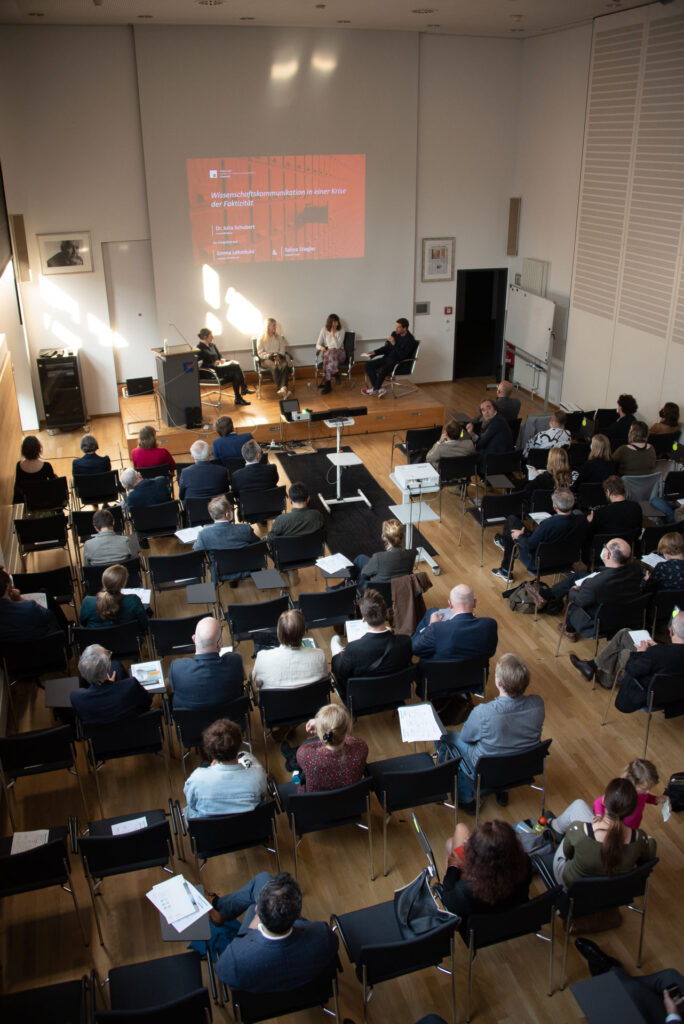
In the second panel, hosted by David Kaldewey (RRC-Co-Director, University of Bonn), Birgit Herden (Die Welt) and Cornelius Schubert (TU Dortmund) discussed “Images and Imaginations of Science”. Focusing on the different working methods and constraints that researchers and journalists face in their respective professional practices, they shed light on the challenges of collaborating on scientific issues. While journalists often require short-term and unambiguous answers under time pressure, scientists need months, if not years until they can deliver differentiated, but often only preliminary results. That the translation of complex scientific research for a broader public can nevertheless succeed became evident in the suggestion developed throughout the discussion – i.e., the idea to form tandems between scientists and journalists in order to bring both systems closer together in practice.

Finally, Eva Weber-Guskar (University of Bochum/ PhilPublica) and Samir Sellami (Soziopolis) addressed the question of a “Quality Circle for the Communication of the Social Sciences and Humanities”. In the third discussion, hosted by Volker Stollorz (RRC-Cooperation Partner, Science Media Center), the two panelists took a closer look at the quality standards determining the work of platforms such as PhilPublica and Soziopolis . Given the lack of sound journalistic evaluation routines for the Humanities and Social Sciences, they engaged with the question of how to develop criteria, analogous to the natural and life sciences, to help journalists recognise expertise in philosophy and sociology.
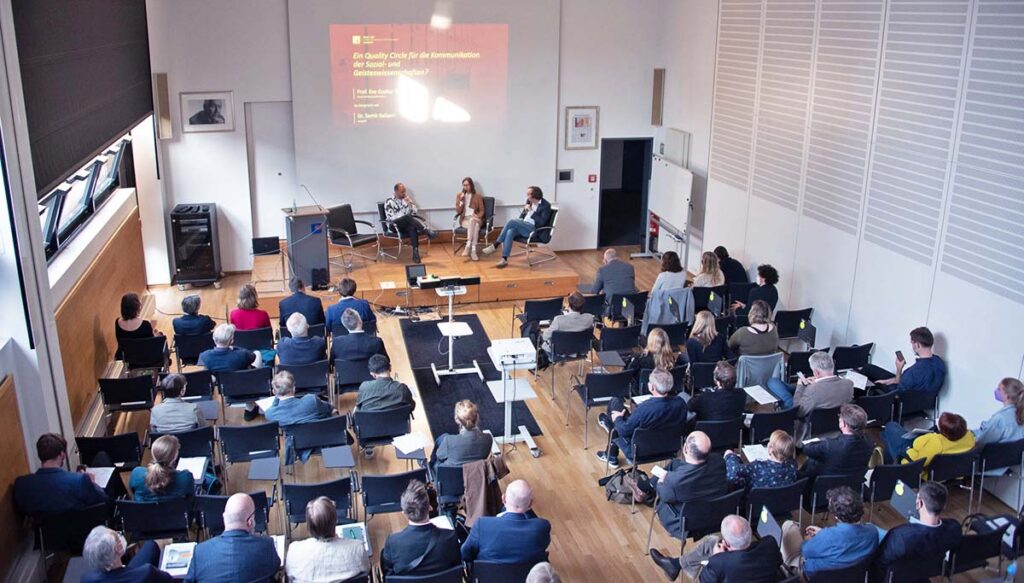
The subsequent more informal discussions over light refreshments and cold drinks in the courtyard of the Erich Brost Institute were a wonderful note on which to end the celebrations. In the sunshine and warm temperatures, the guests were finally able to also discuss the RRC and the future of science communication in person.
